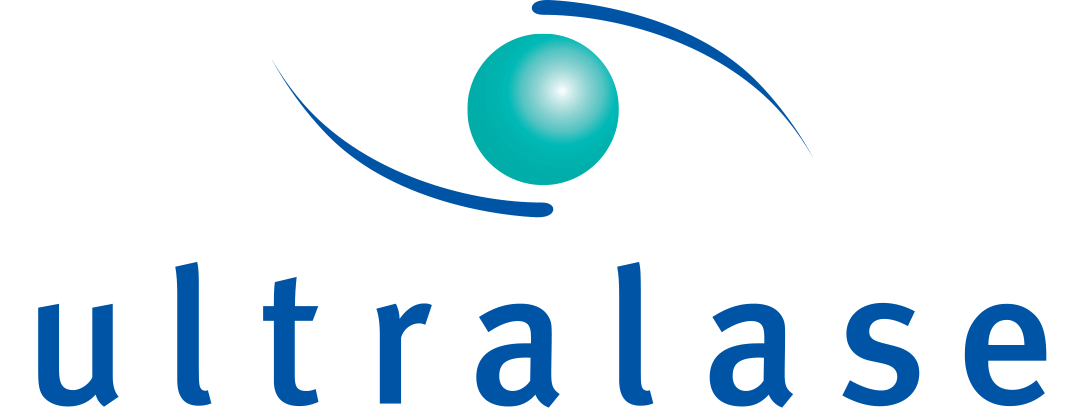Implantable Contact Lenses
If you thought laser eye surgery was your only option to live a life free from glasses, then think again. Implantable Contact Lenses (ICL) can help you achieve the dream of clear vision too!

Also known as 'Phakic IOL', this treatment is generally recommended for individuals under the age of 40 who do not need reading glasses. This is an excellent procedure to consider if you are found unsuitable for laser eye surgery.
What happens in an implantable contact lens treatment?
During treatment, a small lens is implanted into the eye. These lenses are custom-made for each individual and work the same as traditional contact lenses in the way they correct vision; but instead of sitting on the surface of the eye, an implantable contact lens will sit inside the eye (between the iris and the natural lens).
To be suitable for Implantable Contact Lenses:
- You must be over the age of 30 if you have a PLUS prescription.
- You must be over the age of 21 if you have a high MINUS prescription
DID YOU KNOW?
An implantable contact lens is several times smaller than your average contact lens. They contain a UV blocker, which prevents UV rays from entering the eyes; reducing risk of various eye conditions.
One of the great things about ICL’s is that they are not permanent- you have the freedom to have them removed or replaced.
But the benefits don’t stop there, we love ICL’s because:
- They do not cause dry eyes
- They do not affect the cornea and are suitable for those with thin corneas
- They treat a wide range of prescriptions
- They can correct astigmatism
- The procedure is quick and minimally invasive.
How much do implantable contact lenses cost?
Our Implantable contact lens surgery is £3,745 per eye. This is a fixed cost no matter what your prescription is. We also offer finance options to help pay for the cost of treatment.
What finance options are available for implantable contact lens treatment?
Representative examples:
Treatment cost £3745 per eye. Deposit per eye £500. Total amount of credit £3245. Monthly Repayment of £135.20 for 24 months. APR 0% representative.Treatment cost £3745 per eye. Deposit per eye £500. Total amount of credit £4,166.73. Monthly Repayment of £85.67 for 48 months. APR 12.9% representative.
Ultralase Eye Clinics Limited is authorised and regulated by the Financial Conduct Authority and is the broker and not the lender. Our registration number is 723997. Ultralase Eye Clinics Limited offers credit products from Secure Trust Bank PLC trading as V12 Retail Finance. Credit is provided subject to affordability, age and status. Minimum spend applies. Not all products offered by Secure Trust Bank PLC are regulated by the Financial Conduct Authority.
Ultralase offer two types of lenses for ICL’s, which are:
Visian EVO ICL
Visian EVO is our most popular choice of lens for ICL treatment. These lenses offer superior results for patients with hyperopia and moderate to high myopia.
You’ll be amazed to hear that 20/20 vision can be achieved within just one day of being treated!
With Visian EVO, you will benefit from:
- High-quality vision at night time
- UV protection
- Sharp, clear vision (according to our 99% satisfaction rate)
TORIC LENSES
Many people believe that it is not possible to treat astigmatism with surgery, but this simply is not true.
A Toric lens is a lens that is shaped in a specific way, to correct astigmatism; so please talk to us if you fall under this category.
Are implantable contact lenses safe?
The Implantable Contact Lens procedure is considered safe and has been available for over 20 years! At Ultralase, all ICL Lens treatments are performed by our highly skilled surgeons at NHS consultant levels with decades of experience. 99% of our ICL patients were satisfied with the results of their surgery at Ultralase.
What are the ICL risks?
Like with any type of surgery, there are small risks. These will be discussed with you in detail when you attend your consultation. However, your chances of experiencing difficulties are significantly reduced when you put yourself in expert hands. All of our surgeons are registered with the General Medical Council and are Members or Fellows of the Royal College of Ophthalmologists, so a practice of safe and successful treatment is the first thing that they consider. You can rest assured that Ultralase Eye Clinics Ltd has a well-established safety track record when it comes to our ICL treatments.
Are implantable contact lenses permanent?
Many people believe that these are permanent contact lenses, but they don’t have to be. The great thing about implanted contact lenses is that you have the choice to have them removed or replaced if clinically necessary. Therefore, the treatment is reversible and not permanent.
Which is better - LASIK or ICL?
Each treatment comes with its own benefits. LASIK has the advantage of a 24 hour recovery time frame. While you have the option of reversing your ICL treatment, as we discussed previously, the effects of laser eye surgery are permanent. This means that you won't have the chance of reversing the treatment, should your visual requirements change in the future. With ICL surgery, you will also benefit from:
- High-quality vision at night time
- UV protection
- No dry eye syndrome
- Sharp, clear vision (according to our 99% satisfaction rate)
How long does ICL last?
Your implanted contact lenses are designed to last for around 100 years. However, we must stress that due to the natural deterioration of the eye, everyone will need some form of reading glasses between 40-45, as presbyopia begins to kick in as we get older. If there were to be any need to have your implanted contact lens removed or replaced, you would have the option to do so.
Does ICL surgery hurt?
You will experience no pain during ICL surgery thanks to the numbing drops we apply before, during, and after the procedure. It is normal to feel slight pressure during the operation, but most of our patients say they feel comfortable whilst the surgery is being performed.
During the healing process, you may experience some mild discomfort, but we will provide the necessary medication to ease those symptoms. It is completely normal for your eye drops to sting a little once you have administered them, but you do need to continue to use them as prescribed because they will help with healing and preventing infection. If the discomfort persists, however, please contact us!
How long does the ICL surgery procedure take?
The operation itself takes around 20-30 minutes to perform, but expect to be in the treatment room for a little longer. Due to the time to prepare for surgery and discussions you will have with the surgeon and patient advisor, it's best to plan to be in the clinic for 4 hours.
Can I drive after ICL surgery?
Your vision will have significantly improved in comparison to pre-surgery, but the optometrist will advise you to drive when you feel most comfortable and confident to do it. It's best to wait until your first aftercare appointment for the optometrist to determine whether you are suitable to drive or not.
What will my vision be like after ICL surgery?
Due to the dilating drops that are administered and the bright lights, many patients find that their vision is slightly blurred after surgery. This will clear up several hours after the operation. However, you may find that your vision may be delicate for a few days post-treatment. It is advised that you bring a pair of sunglasses with you on the day of your treatment, to ensure you're as comfortable as possible.
How long will ICL surgery recovery take?
Your vision may be blurry for the first few days after ICL surgery, but this will ease with time. It's worth noting that it may take a few months for you to see the final results of your treatment.
Can I have both eyes treated at the same time?
Like laser eye surgery, we can perform bilateral procedures (both eyes treated on the same day, one after the other) for ICL surgery. However, this will need to be discussed with your treating surgeon. If you prefer, you can also have your eyes treated separately a week apart, diary dependent.
Is the implantable contact lens visible to others?
No. The artificial lens is positioned behind the iris, where it is invisible to both you and others. Only an optometrist or doctor will be able to tell that a vision correction treatment has taken place using an ophthalmoscope.
Will I be able to feel the implantable contact lens once it's in place?
The lens is not typically noticeable after it has been implanted. It does not attach to any structures within the eye and does not move around once in place. After having ICL surgery, you may experience a grit-like, scratching sensation in your eyes, like you may have something on the surface. This is entirely normal and is due to the tiny incision made on the surface of your eye during the procedure. This sensation should disappear in time as your eyes heal.
Who would not be suitable for ICL treatment?
Anyone who is pregnant or breastfeeding should avoid having any form of vision correction treatment, including ICL. This is because of fluctuating hormone levels which can cause a change in your prescription. Once you have finished breastfeeding, we recommend waiting three months before the consultation to allow your hormones to settle and then provide accurate eye scans.
What care will I receive after ICL surgery?
At Ultralase, rest assured you're in safe hands as we take your journey to clear vision very seriously, including your aftercare! You will receive one year's free aftercare, during which we will meet several times to discuss the healing progress of your ICL surgery. Your first appointment will be scheduled within a day or two of your operation, with two more to come over the following 4-6 weeks. Finally, if all is well and everything seems satisfactory, you will be discharged after 3-6 months.
You can find more information about our ICL surgery aftercare programme here.
